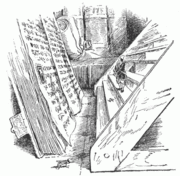TTA:Getting started: Difference between revisions
No edit summary |
No edit summary |
||
| (5 intermediate revisions by the same user not shown) | |||
| Line 1: | Line 1: | ||
__NOTITLE__ | |||
{{Help intro frame top}} | {{Help intro frame top}} | ||
<!-- TABS --> | <!-- TABS --> | ||
| Line 4: | Line 5: | ||
|style="padding: 2em;" | | |style="padding: 2em;" | | ||
<!-- CONTENT --> | <!-- CONTENT --> | ||
As a new contributor, you may feel a little overwhelmed by the sheer size and scope of this project called The Traditional Tune Archive. Don't worry too much if you don't understand everything at first, as it is acceptable to use common sense as you go about editing. The Traditional Tune Archive not only allows you to create, revise, and edit | [[File:collection1.preview.gif|180px|left|link=|The Traditional Tune Archive]] | ||
As a new contributor, you may feel a little overwhelmed by the sheer size and scope of this project called The Traditional Tune Archive. Don't worry too much if you don't understand everything at first, as it is acceptable to use common sense as you go about editing. The Traditional Tune Archive not only allows you to create, revise, and edit tunes and annotations, but it wants you to do so. You just need to remember that you can't break The Traditional Tune Archive and although there are many protocols, perfection is not required, as The Traditional Tune Archive is a work in progress. Collaborative editing means that incomplete or poorly written first drafts can evolve over time into excellent tune scores and annotations. | |||
{{break| | |||
{{break|2}} | |||
This page provides information and resources needed to comprehend, comment on, and edit The Traditional Tune Archive. | This page provides information and resources needed to comprehend, comment on, and edit The Traditional Tune Archive. | ||
{{break}} | {{break}} | ||
Latest revision as of 11:42, 6 January 2024
|
New Users Adding tunes Tune book Recorded sources Tune Annotations Typesetting Guidelines Public domain material Theme Code Index
|
 As a new contributor, you may feel a little overwhelmed by the sheer size and scope of this project called The Traditional Tune Archive. Don't worry too much if you don't understand everything at first, as it is acceptable to use common sense as you go about editing. The Traditional Tune Archive not only allows you to create, revise, and edit tunes and annotations, but it wants you to do so. You just need to remember that you can't break The Traditional Tune Archive and although there are many protocols, perfection is not required, as The Traditional Tune Archive is a work in progress. Collaborative editing means that incomplete or poorly written first drafts can evolve over time into excellent tune scores and annotations.
|
